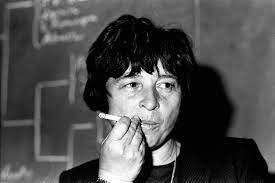Heller, Ágnes

Bio: (1929-2019) Hungarian philosopher and sociologist. Agnes Heller received her doctorate at the University of Budapest, where her mentor was Lukàcs. At the beginning of her career, her thought was in line with the Marxism of the so-called Budapest School, to which she herself belonged. Because of his dissident views, he left Hungary in 1977 and first immigrated to Australia, and then moved to the USA. In the book A Theory of Feelings (1979) she presents a philosophical anthropology that is based on needs and feelings and in which social action is directed and grounded in ethics, morality, and the autonomous, self-responsible, and reflective individual. Heller is best known for the book Dictatorship over Needs (1983), which she co-authored with Ferenc Fehér and Georgy Márkus. In this book, the authors criticize real-socialism as it was installed in Eastern Europe under the influence of the Soviet Union, after the Second World War.
In the book, A Theory of Modernity (1999), Heller presents a critical theory of modernity. She believes that in the age of modernity, the central value is freedom. Modernity is characterized by social and individual freedom to question all previously existing norms, rules, and beliefs through the value categories of good and bad. On the other hand, what gives modernity its continuity and resistance to change is technology and the relations of dominance that arise from differences in wealth and political power. It is this double bind of modernity - that, on the one hand, all values and relations are called into question, and on the other hand, stability and resistance to change, is the key feature that sets modernity apart from earlier periods.
Fields of research
Actors Alienation Authority Bureaucracy Capitalism Control, Social Cooperation Crisis Democracy Dictatorship Domination Economy Egalitarianism Elites Emotions Exploatation, Economic Everyday Life Freedom Free Will History Identity Ideology Individualism Inequality, Social Law Leaders Market Modernity and Modernization Morality Personality Politics Postmodernism Power, Political Psychology Revolutions Socialism State StatusTheoretical approaches
Marxism – Budapest SchoolMain works
A reneszánsz ember (1967);
A Day-to-Day Life (1970);
Hypothesis über eine marxistische Theorie der Werte (1972);
Theorie der Needs bei Marx (1972);
Philosophie der linken Radikalismus (1978);
A Theory of Feelings (1979);
A Theory of History (1982);
Dictatorship over Needs (1983);
A Radical Philosophy (1984);
The Power of Shame (1985);
Eastern Left – Western Left: Freedom, Totalitarianism, Democracy (1987);
Beyond Justice (1988);
General Ethics (1989);
The Postmodern Political Condition (1989);
From Yalta to Glasnost: The Dismantling of Stalin's Empire (1990);
The Grandeur and Twilight of Radical Universalism (1990);
Can Modernity Survive? (1990);
A Philosophy of Morals (1990);
The Grandeur and Twilight of Radical Universalism (1991);
An Ethics of Personality (1996);
A Theory of Modernity (1999);
The Time is Out of Joint: Shakespeare as Philosopher of History (2000);
Immortal Comedy: The Comic Phenomenon in Art, Literature, and Life (2005);
Trauma (2006);
A mai historiskie regény (2011).

